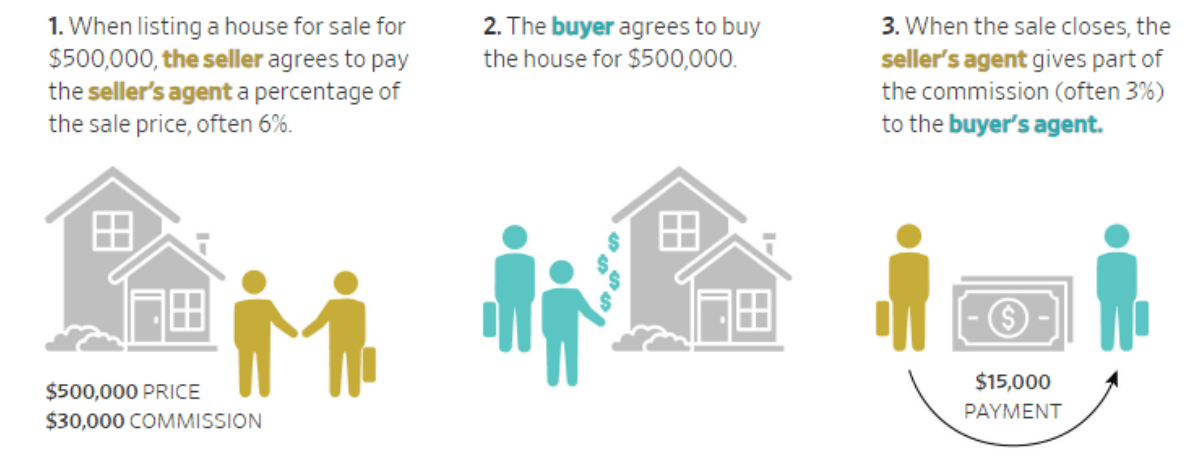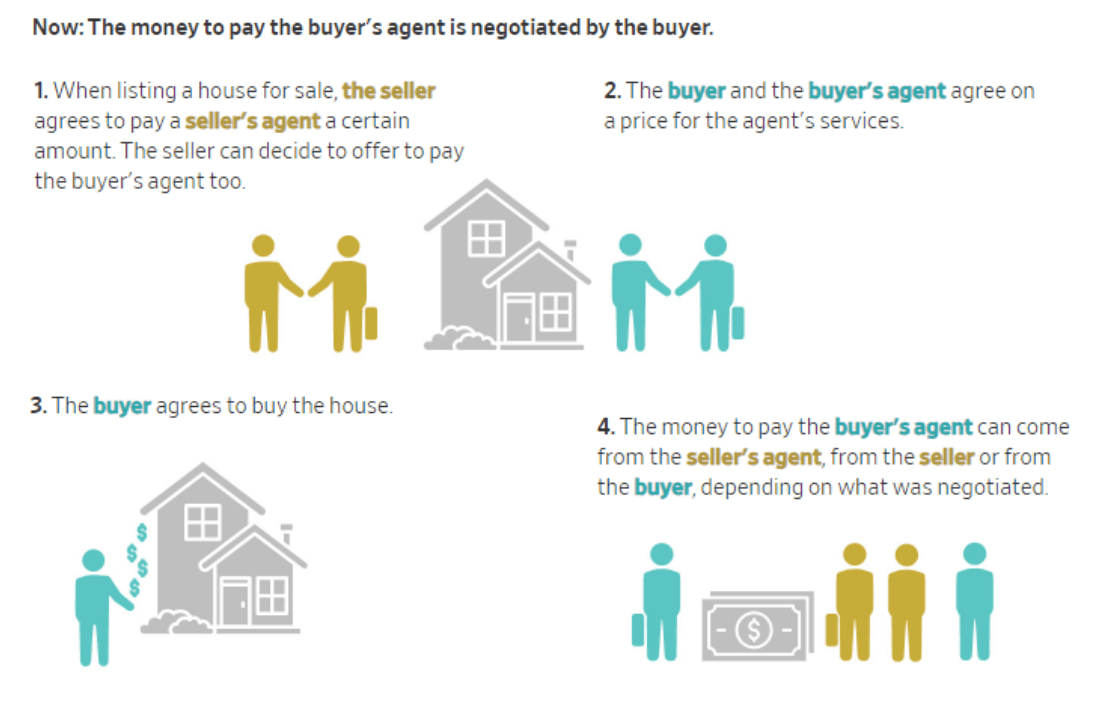If you are like millions of Americans buying into the dream of home ownership, today begins a new era, as landmark changes go into place that will ostensibly fuel lower commissions paid by consumers. This is not small potatoes we’re talking about here, but serious cash that can be saved at the closing table by sellers across the land. So how did we get here? The rules were agreed to by the National Association of Realtors, as part of a $418 million settlement into antitrust claims. The rules are designed to transform the way Realtors get paid and who pays them. The changes have just started and the affects could be profound.
Anyone who has every sold a home knows how painful the expenses are associated with a real estate closing, especially the gut punch of Realtor fees. One typically shells out 6% of the sale price, regardless of home value or effort put forth. Thus, the seller of a $100,000 home would pay $6,000 in commissions, and the seller of a $1,000,000 would pay $60,000, for often times performing very similar work. It’s always been the saying in the real estate business that you either list or parish, meaning it’s tough to make it being strictly on the buy side, or representing home buyers. Now the situation is even more tenuous.
The seller in the past would pay not only the commission for his broker, but would also pick up the tab for the buyers broker. This is where the crux of the issue was, and where the changes are most likely to be draconian. As mentioned, today is the first day the court has mandated that changes take place, but certain states have already begun transitioning into the new models. Thus far, it’s been everything from the status quo to commissions being cut in half. The graphic below depicts the old model.

Agents will try to push back on the changes as one might expect. New sellers may hear that an agent or firm won’t work with them to list their property unless they execute an agreement for 6%. In some situations it may make sense to work with an experienced firm that knows the market you are selling in. Particular if it’s a slow market or if your home is particularly challenging to sell. One suspects that the market around real estate commissions will become much more efficient as we go into the early and later innings of these mandated changes. New models will be rolled out on the buy side that will undercut the old model of a buyer’s agent receiving a 3% fee from the seller. Just as there is an efficient market hypothesis in finance, which says that all known information is immediately factored into the price of a stock or security, the real estate market will also become more efficient. My guess is that only a small number of people actually know these changes are transpiring. Over time, once individuals in mass realize the substantial savings available, new pricing models will drive the commission structure event lower.

As the chart above shows, the system on the buyer’s side is now highly negotiable. According to the NAR, buyers must now sign a legally binding representation agreement with their agent before they can begin touring homes together. This may be daunting to many, signing an agreement that is in essence open ended. According to Norm Miller, professor emeritus of real estate at the University of San Diego, “The idea is if buyers are aware that they can negotiate commissions and that if they, in fact, do pay them, not the seller, it might create a more completive market and possibly a menu of services in the future that would be more comparable to other developed countries.”
So we see that this is a big win for home owners, and probably a big gut punch for many real estate agents and smaller firms. With that said, what does this do, if anything, to pricing in the overall market? First and foremost, it is reality that interest rates have the biggest impact on the market and pricing in general. We’ve seen direct results of this over the past several years as mortgage rates climbed with Fed hikes and inflation to hit multi-decade highs. Aside from mortgage rates, it’s likely that the bigger players in the market, i.e. Re/Max, Coldwell Banker et al will at some point compete on price, forcing others to lower costs or perish. Experts have been slow in making comparisons to the securities brokerage firms, travel agencies, etc., who all were forced, not by proxy, but by the efficient market, to lower or eliminate commissions and change the model to profit elsewhere. It’s not if this is going to happen in real estate, the only question is when.











